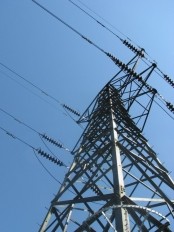|
||||||||||||||||||
| Download the revised decree and electoral calendar, published in the official journal |
|
|
Haiti - Reconstruction : (V) Energy - Strategic Plan 08/01/2011 07:24:20
12 months after the earthquake, funding has started to come, if slowly. The domestic and international communities are starting to work together more effectively. The IHRC is taking an active role in this cooperation, as evidenced by the projects approved by the IHRC (valued at $3 billion) for which international organizations have partnered with Haitian ministries. While donors begin to fulfill their pledges and have difficulty accessing the facts about what is needed most on the ground, many are asking how to prioritize their spending. The strategic plan presented at the fourth meeting of the IHRC, December 14, 2010 at Santo Domingo in the Dominican Republic, will help guide the project implementers, donors and investors as they guide the disbursement of their pledges for the reconstruction and development of Haiti, and add much needed new funding. Developed jointly by the Commission, international experts and ministry leaders, this plan outlines many of the most important things needed in Haiti by October 2011, the end of IHRC’s mandate. Each day of the week we'll discover a part of this strategic plan for 2011. Today we cover the energy. Targets
Rationale Even before the earthquake of January 2010, the power sector in Haiti was among the most problematic in the world. Only about one quarter of the population has access to electricity service, of which half are connected illegally to the grid. Although residential tariffs in Haiti are relatively low compared with other fossil fuel dependent countries in the region, commercial and industrial tariffs are amongst the highest at about $.35/ kWh. Lack of access to affordable and reliable power hinders investment in the country, constrains the development of productive businesses, prevents the full provision of high quality social services, and degrades living standards for residential customers. Providing electricity service is by nature a process that has long lead times and requires significant up front investment before tangible results are readily realized in terms of actual service to customers. To address the problems endemic in the sector requires an approach that addresses the structural deficiencies in the management and governance of the sector and well as commits significant capital commitments to the sector. As such, in addressing the developments possible in the sector during the 18- month mandate of the IHRC, one must by definition address on-going activities in the sector and determine to what degree these activities and projects can assist the IHRC is addressing the problems in the sector in the post-earthquake period. Investments currently underway or being proposed for the short- term include upgrading targeted distribution circuits, sub-station repairs, metering (particularly of large customers), relay coordination, and customer registration. Completion of these projects in Port-au-Prince will facilitate the improvement of service and help achieve the targeted goals. The projects will result in increasing the number of hours of service from the approximately 6-8 hours on average by at least 20%. This would result in tangible results for citizens currently plagued by unreliable service. Required programs In terms of rural energy service, given the very low access rates in rural areas, off-grid or mini-grid solutions seem to be most appropriate, such as: (i) construction of hybrid mini-grids with renewable energy and diesel back-up, and (ii) installation of solar PV panels in more isolated, less densely populated areas, focusing on schools and health centers as a first step. MTPTC must prepare a large-scale rural access plan that might define priorities and approaches for access to off-grid communities. A rural access plan will help define a nationwide strategy for rural access. Pilot projects to test potential models and financing schemes could be launched immediately, involving local communities and the private sector. Funding requirement
Policy decisions and institutional enablers An appropriate institutional, legal and regulatory framework must be established to increase transparency and accountability in the sector. There must be adequate authority and institutional capacity to provide regulatory oversight of contracts with the private sector and implement government policy with respect to the power sector. A fundamental requirement would be the strengthening of the MTPTC’s Unité de Gestion de Secteur Energétique including the possible development of sub-sectoral units focusing on renewable energy, rural electrification, and household energy and the preparation of studies for the promotion of renewable energy, energy efficiency, and the development of an electricity access and household energy strategy. Key interventions would focus on: (i) creating sustainable and long-term government capacity to govern and oversee the power sector; (ii) enhancing macroeconomic governance through transparent financial flows; including for Independent Power Producers contracts, Power Purchase Agreements, and cross-subsidies; (iii) improving oversight of corporate governance at the enterprise level, (iv) establishing modalities for a balanced and efficient participation of the private sector; and (v) supporting the promotion of clean energy. Interdependencies with other sectors Through the education sector, there is an immediate need to establish training facilities in the area of renewable energy training. This will ensure that the gains realized over the period of this mandate are sustainable in the long term through the work of trained technicians with the ability to service such technologies. The MTPTC’s energy unit will have to work directly with the Ministry of Education to put in place the foundations of an education program to provide technicians with the relevant skill set. (1) The conservative assumption in this scenario is that each family on average would require approximately 100 watts of service. This includes the larger systems that service clinics, schools and community centers. The assumed cost is approximately US$20/watt. This is a figure on the high end of current market conditions to take into account the uncertainties in the market conditions in supplying large scale systems in Haiti. It is a possibility that this figure can be reduced with efficient program implementation. See also: https://www.haitilibre.com/en/news-2033-haiti-reconstruction-i-housing-strategic-plan.html https://www.haitilibre.com/en/news-2047-haiti-reconstruction-iii-education-strategic-plan.html https://www.haitilibre.com/en/news-2054-haiti-reconstruction-iv-health-strategic-plan.html https://www.haitilibre.com/en/news-2066-haiti-reconstruction-vi-job-creation-strategic-plan.html HL/ S/ HaitiLibre/ CIRH
|
|
|
Why HaitiLibre ? |
Contact us |
Français
Copyright © 2010 - 2026 Haitilibre.com |





